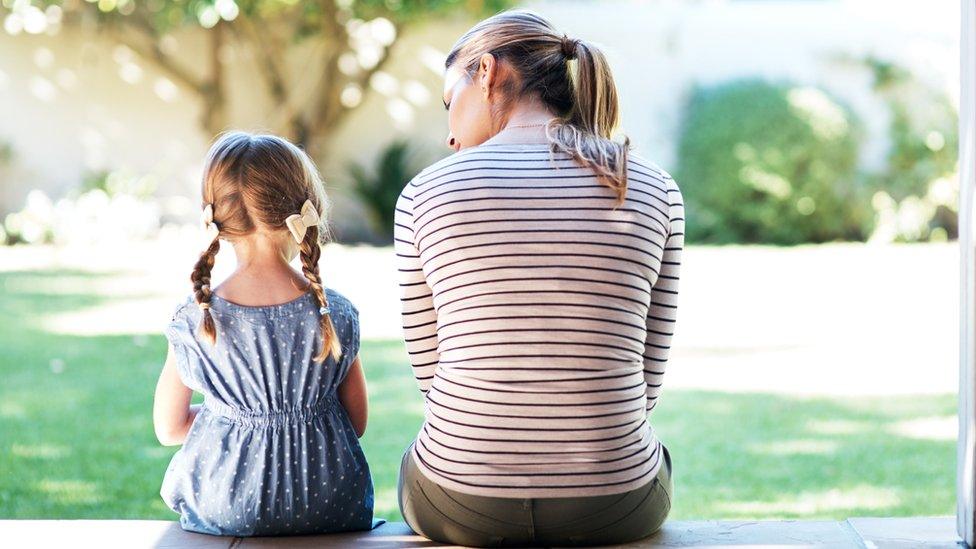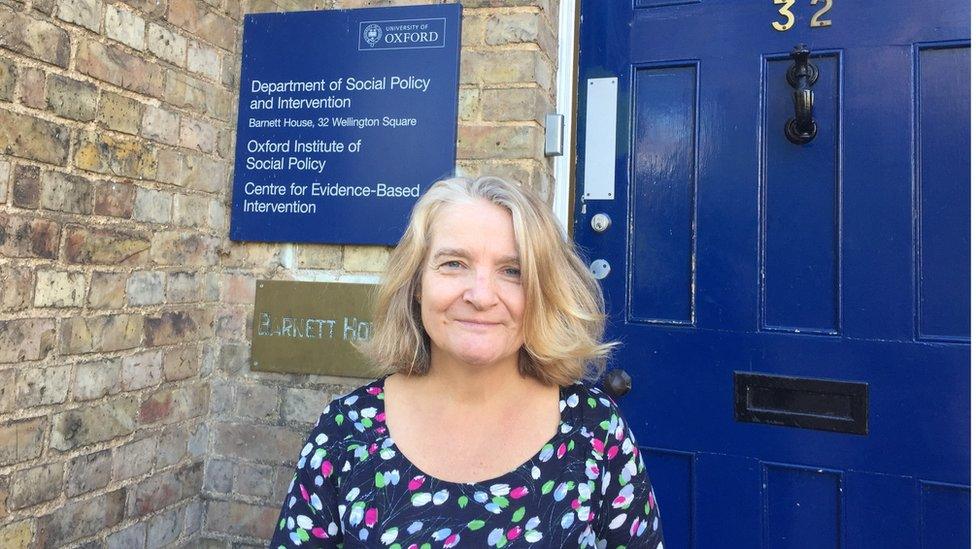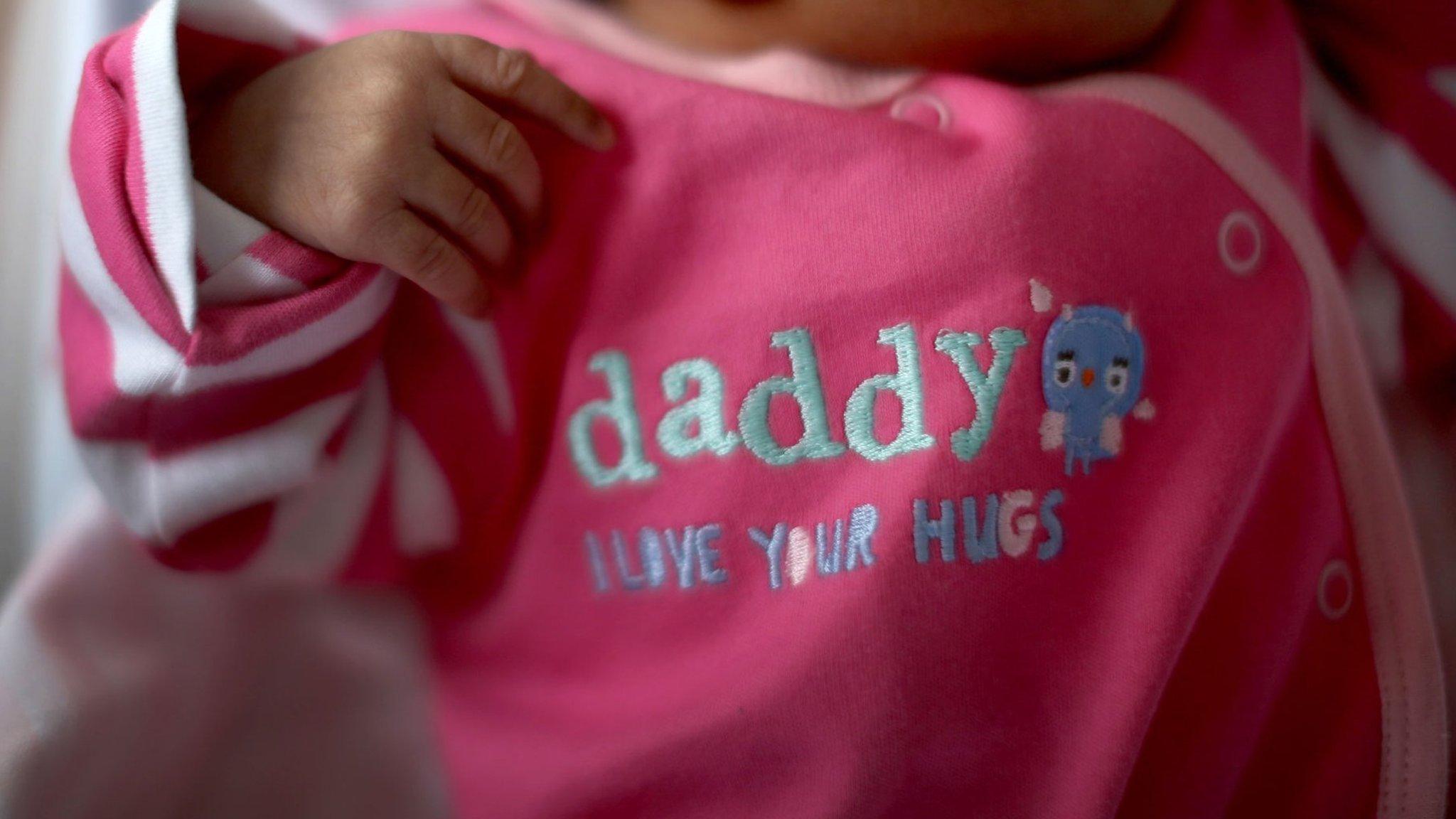It's 'never too late' for parenting advice, study says
- Published

Parenting programmes for helping children with behavioural problems are just as effective in primary school age children as in pre-school children, Oxford University research suggests.
The study challenges the view that, for the best results, help should be given early in life, when children's brain function and behaviour are thought to be more easily manipulated.
The research says it's time to stop focusing on when to intervene with parenting skills, and step in to help children in need of all ages.
How was the research carried out?
The Oxford researchers analysed data from 15,074 families from all over the world who had taken part in parenting schemes aimed at addressing their children's disruptive behaviour.
In both sets of data, behaviour problems were measured using standard parent report questionnaires.
The children ranged in age from two to 11 years
60% of the families had low income
30% were from ethnic minorities
Most reported the intervention programme had reduced child conduct problems
What are the researchers' conclusions?
After analysing the findings, the study, external concludes that older children benefited just as much as younger ones from parenting interventions for reducing behaviour problems and there was no evidence for the "common belief that earlier interventions are more powerful".
It also says that schemes aimed at a narrower age range were no more effective than those aimed at a more general age range.
Prof Frances Gardner, from Oxford University's Centre for Evidence-Based Intervention, who led the research, said: "Where there is concern about behavioural difficulties in younger children, it is important that our findings are never used as a reason to delay intervention, as children and families otherwise will suffer for longer.
"With respect to common parenting interventions for reducing behaviour problems in childhood, rather than believing 'earlier is better', we should conclude 'it's never too early, never too late'."
What could the research mean for policymakers?
The study says the results are optimistic "in that it is not in any sense 'too late' to intervene later in childhood, when children are older".
"Second, they point to the need to ensure services focus on identifying and supporting older and younger children with evidence-based parenting interventions rather than focusing a disproportionate share of intervention resources toward younger children.

Prof Frances Gardner says the findings are not an excuse to delay intervention
"Third, our findings suggest there may not be a need for different programmes for specific developmental stages, so long as they are sensitively adapted to the age of the particular child.
"This would have significant implications for services in relation to cost saving, both in terms of therapist training and also intervention delivery."
How reliable is the research?
The Oxford researchers acknowledge there are limitations with the studies they examined - notably that the age range covered two to 11.
"We do not know whether very early parenting interventions from ages zero to two are any more of less effective than those delivered later," they say.
"Nor were we able to test whether the early intervention hypothesis might hold for childhood versus adolescence or adulthood."
They also say that both studies examined relied on parents' assessment of how interventions had helped "which may be open to bias".
And the effects of parenting schemes only for disruptive child behaviour were examined "rather than other child outcomes that may benefit from parenting interventions, such as emotional problems or cognitive development".
What happens next?
The researchers say more analysis is needed.
They say future studies should focus on adolescents, longer-term outcomes and using multiple sources for assessing child behavioural problems.
The study is published in Child Development.
- Published15 June 2016

- Published10 September 2018
